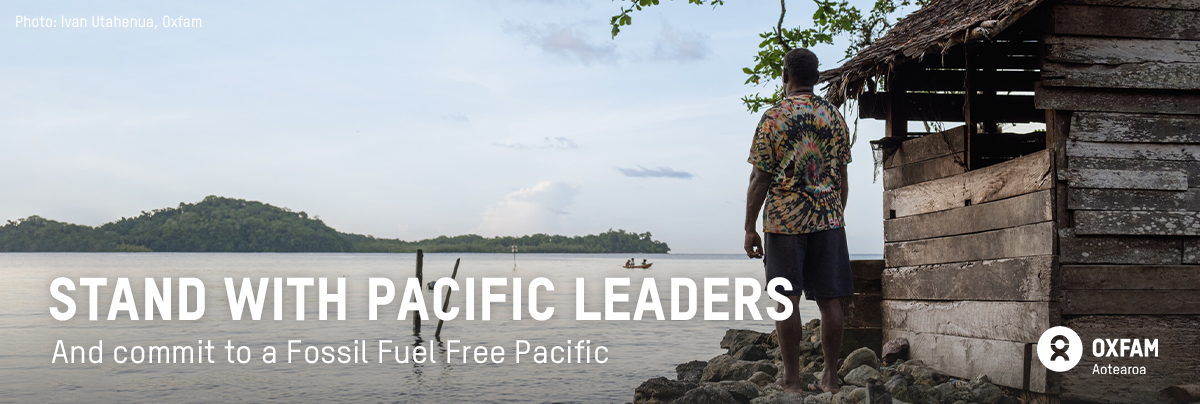Oxfam Aotearoa congratulates Pacific Island Students Fighting Climate Change (PISFCC) on their successful campaign to put the world’s Governments’ responses to climate change before the International Court of Justice (ICJ). Oxfam Aotearoa’s climate justice lead Nick Henry said:
“Well done to the New Zealand Government for standing with the Pacific at the UN today on Vanuatu’s resolution. This is what we want to see from our government.
“To put this into perspective, the last comparable opinion was in 1996, when, after a long campaign from civil society, the ICJ issued an advisory opinion on nuclear weapons that was critical to nuclear disarmament and keeping the Pacific nuclear free.
“The world’s governments, especially in rich countries, must urgently take stronger action to reduce greenhouse gas emissions and stop the climate crisis getting worse. A strong opinion from the ICJ would help to hold governments to account on their obligations to act.”
Spokesperson for PISFCC Solomon Yeo said: “Today we celebrate four years of arduous work in convincing our leaders and raising global awareness on the initiative. We commend the undying support of our Pacific civil society organisations, communities, and youth who, without their support, we would not have ventured this far.
“The adopted Resolution is a testament that Pacific youth can play an instrumental role in advancing global climate action. This further solidifies why young people’s voices must remain an integral part of the process. Now the first stage is over, we look to join hand in hand with governments and partners in bringing the world’s biggest problem to the world’s highest court.”
Oxfam Aotearoa and NZ Centre for Environmental Law says it looks forward to engaging with the government on its written and oral submissions to the court to make sure the Advisory Opinion sets clear expectations for states to act with urgency to stop the climate crisis.
Notes:
- The UN General Assembly has voted to request an advisory opinion from the International Court of Justice on ‘the obligations of States in respect of climate change’. The resolution asks the ICJ to clarify the obligations of states to take effective action on climate change, as well as the consequences under international law for states that fail to act.
- Here is the UN resolution text.







